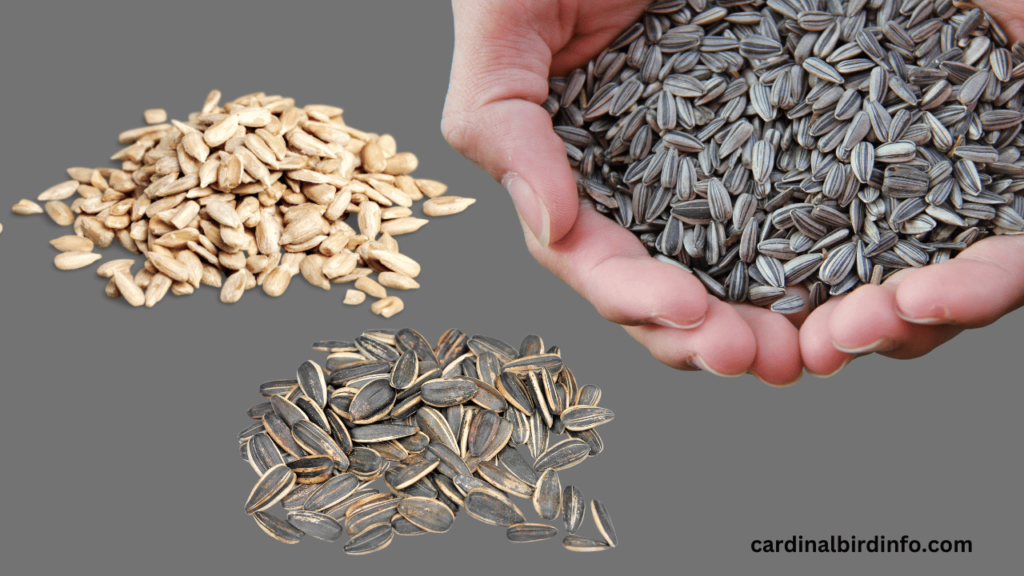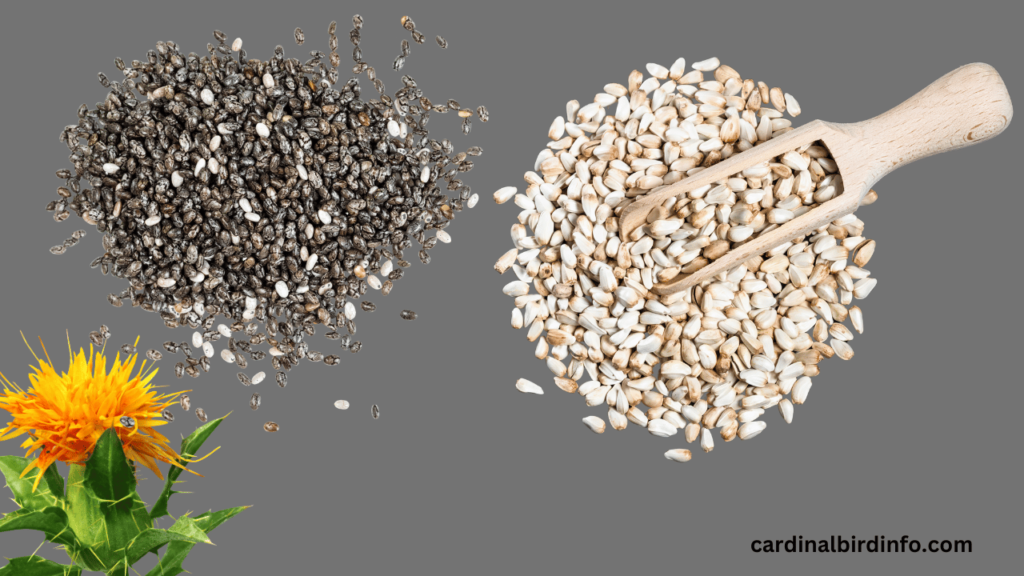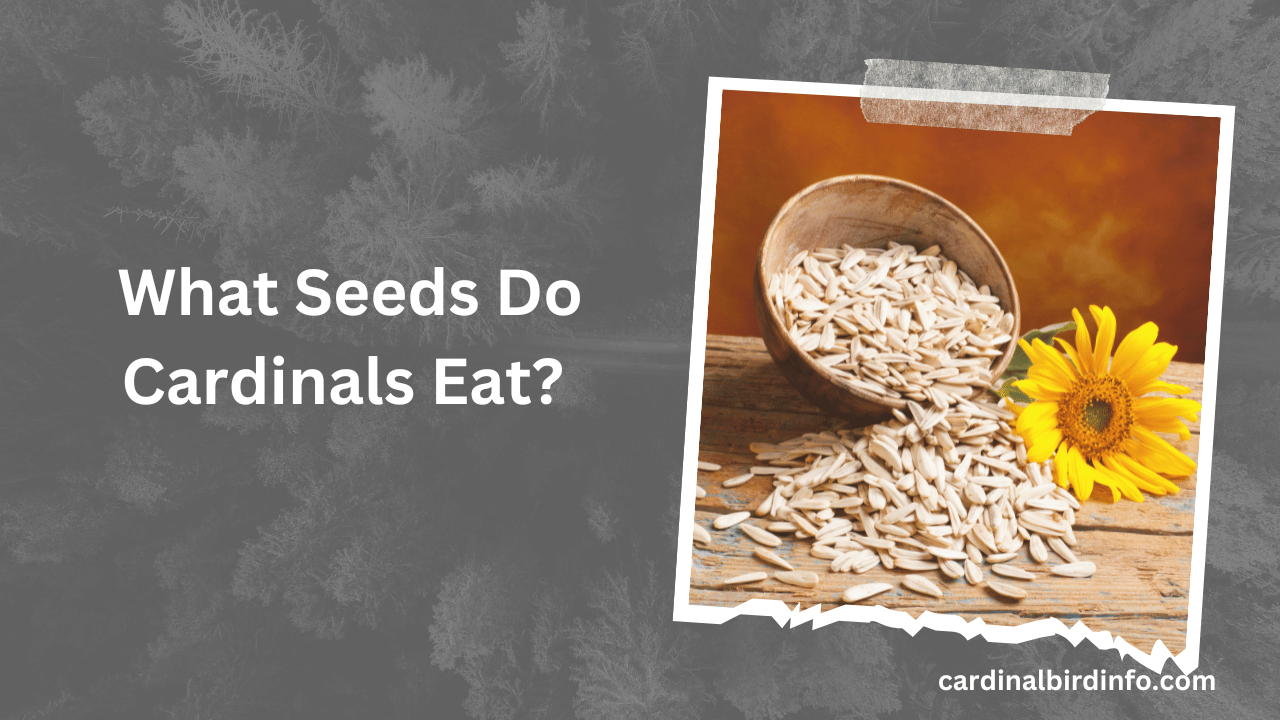Cardinals, with their vibrant red plumage and cheerful songs, have a way of brightening up any backyard. These beautiful birds are not just a visual treat; they also play an essential role in our ecosystems.
As seed-eating specialists, cardinals rely heavily on various seeds for their nutrition and survival. Understanding what seeds they prefer can transform your backyard into a haven for these feathered friends.
For bird enthusiasts, attracting cardinals involves more than just putting up a feeder; it requires knowledge of their dietary preferences. By learning about the specific seeds that cardinals consume, you can provide the right nutrition that keeps them coming back.
This article will delve into the fascinating world of cardinal nutrition, exploring their preferred seeds, factors influencing their choices, and practical tips for maintaining a healthy diet for these delightful creatures.
As we explore the preferences and needs of cardinals, you’ll discover how their eating habits change with the seasons and what this means for your backyard feeding strategies.
The beauty of watching these birds is amplified by the knowledge that you’re meeting their nutritional needs, thus helping them thrive.
Join us on this journey to understand the essential role seeds play in the lives of cardinals and how you can create a welcoming environment that not only attracts them but supports their overall health and well-being.

Contents
Preferred Seeds
Sunflower seeds: One of the staples in most bird feeders, sunflower seeds are highly favored by cardinals. They are rich in nutrients and provide a good source of energy, making them an excellent choice for attracting these vibrant birds.
Their robust flavor and availability make them a go-to option for both cardinals and many other bird species.
Safflower seeds: Cardinals also appreciate safflower seeds, which are slightly smaller and have a unique flavor profile. These seeds offer a different nutritional benefit and are often considered a great alternative for those wanting to attract cardinals while keeping out less-desired species.
The appeal of safflower seeds lies in their nutritional value and suitability for cardinals.
Black oil sunflower seeds: A popular variety, black oil sunflower seeds have a higher oil content, making them particularly attractive to cardinals. These seeds are energy-rich, providing the necessary fuel for cardinals, especially during the colder months.
The soft shell makes it easier for cardinals to access the seed, ensuring they receive maximum nutrition.
Nyjer seeds: Tiny, black nyjer seeds are another favorite among cardinals, especially in winter. These seeds are packed with energy and can attract multiple small bird species.
Offering nyjer seeds can create a bustling feeder, enhancing your birdwatching experience and providing cardinals with the nourishment they need.
Milo: As a good alternative to corn, milo can be enjoyed by cardinals, particularly when other seeds are scarce. It serves as an excellent source of carbohydrates and can fill in gaps when their preferred seeds are not available.
Including milo in your seed mix can ensure that cardinals have plenty of options to choose from.
Cracked corn: Although not as popular as other seeds, cardinals may consume cracked corn, especially during winter months. This grain can be beneficial for providing extra calories and is an economical option for bird feeders. Including cracked corn in your offerings can cater to their diverse dietary needs.
Factors Influencing Seed Preferences
Seasonality: Cardinals exhibit preferences for different seeds throughout the seasons. For instance, during winter, they might favor high-energy seeds like sunflower seeds to help maintain their body heat.
Understanding these seasonal preferences allows birdwatchers to adjust their feeding strategies accordingly, ensuring cardinals have access to the best food options.
Availability: The availability of various seeds in their environment significantly influences cardinals’ preferences. If certain seeds are scarce, they may adapt and consume alternative options, showcasing their ability to thrive under changing conditions.
This adaptability highlights the importance of providing a diverse mix of seeds in your feeders.
Nutritional needs: Cardinals’ nutritional needs may vary based on age, reproductive status, and overall health. For example, breeding pairs might seek out protein-rich seeds to support their young, while adults may look for seeds that boost their energy levels.
Understanding these needs can guide bird enthusiasts in offering the right seeds at the right time.
Individual preferences: Just like humans, individual cardinals may have their own tastes when it comes to seeds. Some birds may consistently favor specific types over others, making it beneficial to provide a mix of seeds to cater to diverse preferences.
Observing these behaviors can enhance your birdwatching experience as you get to know your feathered visitors.

Providing a Healthy Cardinal Diet
Variety is key: Offering a variety of seeds is essential for ensuring that cardinals receive a balanced diet and meet their nutritional needs. A diverse selection allows them to choose their preferred seeds and helps them get the right mix of nutrients.
Providing different seed types can attract a wider range of birds to your feeders.
Fresh water: In addition to seeds, providing a clean source of water is crucial for cardinals. They need water not just for drinking but also for bathing, which helps them maintain their feathers. Ensure your birdbath is clean and filled regularly to create a welcoming environment for these birds.
Avoid moldy or spoiled seeds: Keeping feeders clean is essential for the health of the cardinals. Discard any seeds that are moldy or show signs of spoilage, as these can cause health issues for the birds. Regular maintenance of feeders can prevent the spread of diseases and keep your backyard healthy.
Consider supplemental feeding: During harsh weather or when natural food sources are scarce, providing supplemental feeding can be beneficial. This extra support ensures that cardinals have access to the nutrients they need to survive and thrive.
Adjusting your feeding strategies during challenging conditions can make a significant difference in their well-being.
Conclusion
Understanding the seeds that cardinals eat is essential for attracting and supporting these beautiful birds in your backyard. By offering a variety of high-quality seeds and creating a suitable habitat, you can enjoy the presence of cardinals throughout the year.
These small adjustments can foster a thriving bird community in your space.
The information presented in this article serves as a guide to help you contribute to the conservation of these delightful creatures.
By creating an inviting environment for cardinals, you not only enhance your birdwatching experience but also play a part in supporting their populations.
Ultimately, the joy of watching cardinals visit your feeders goes hand in hand with providing them the nutrition they need to thrive. Each seed you offer plays a role in their health and survival, enriching both their lives and yours as you witness the beauty of nature in action.
FAQs
What seeds do cardinals prefer?
Cardinals prefer seeds such as sunflower seeds, safflower seeds, black oil sunflower seeds, and nyjer seeds. These seeds provide the essential nutrients they need for energy and overall health.
Are cardinals seed-eating specialists?
Yes, cardinals are primarily seed-eating birds. Their beaks are adapted for cracking open seeds, allowing them to thrive on a diet rich in various seeds available in their environment.
Do cardinals eat insects?
While seeds make up the majority of their diet, cardinals also consume insects, especially during the breeding season when they need extra protein for their young. This balanced diet helps them maintain their health.
How does the season affect cardinal seed preferences?
Cardinals may prefer different seeds depending on the season. For instance, they often favor high-energy seeds like sunflower seeds in winter to help maintain their body heat during colder months.
Can I provide cracked corn for cardinals?
Yes, while cracked corn is not their favorite, cardinals may consume it, especially in winter. It can serve as an additional food source, particularly when other seeds are less available.
Do individual cardinals have seed preferences?
Yes, just like people, individual cardinals may develop specific tastes for certain seeds. Observing which seeds your local cardinals prefer can help you tailor your offerings to attract them consistently.








